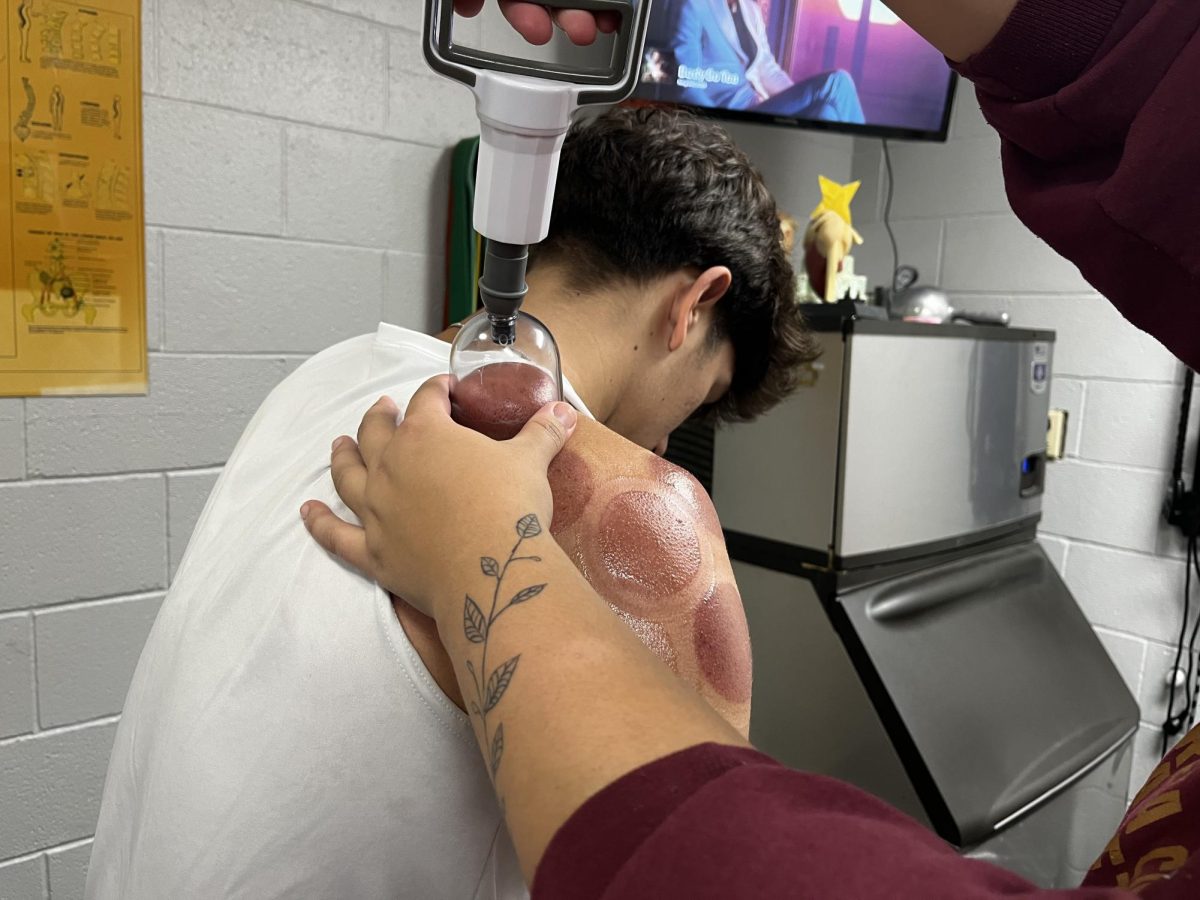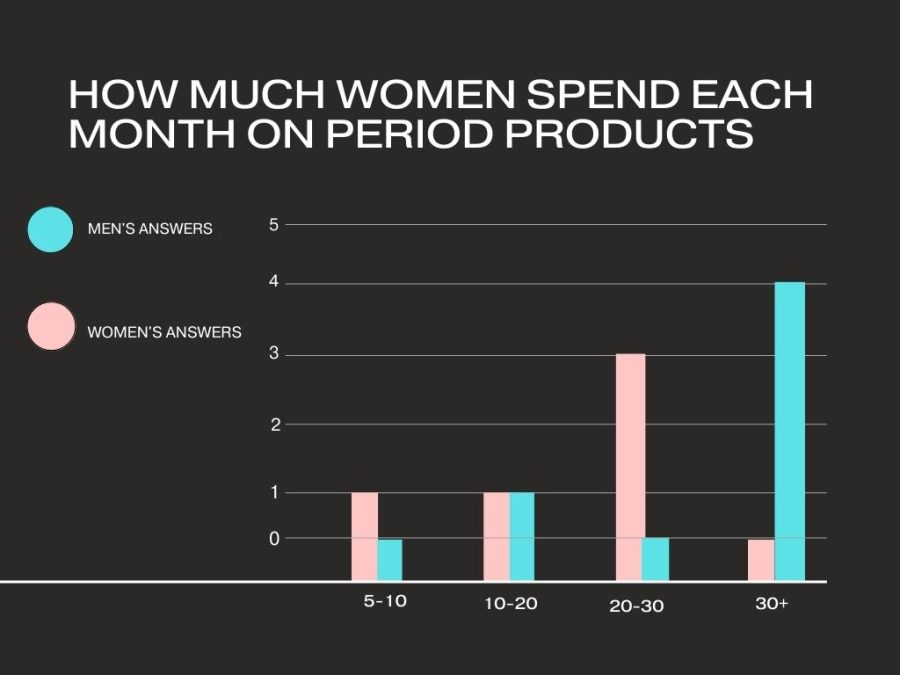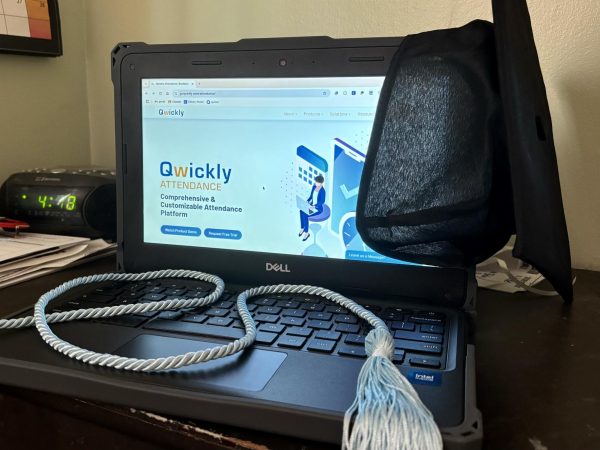The Effects of the Pink Tax on Feminine Hygiene Products
The nation is currently celebrating Women’s History Month and even though there is an entire month dedicated to women, women are still being paid almost 20 cents on average less than men. Women’s products are also being taxed more than men’s due to the “pink tax”. The pink tax, also known as the Tampon Tax, essentially inflates the price of women’s products compared to men and while it can appear as only a few extra cents at first, it can add up quickly over a lifetime. This is particularly evident with women’s hygiene products. Pads, tampons, and other items for feminine health are taxed to death and many men don’t even know about how much a woman spends on average in a month.
Data was collected from a sample group of five men and five women on how much a woman spends per month on feminine health products and how much on average they think a box of tampons costs. In the graph pictured with this article, it is evident that many men believed that women were spending over $30 per month every month. The lowest guess was $18 and the highest was over $100. The average amongst the women was only $25. The average price for a box of 20 tampons is $8 which will only last for one month. The men’s guesses were between $9-$25 and some admitted that they had never thought about the price of something like that. Even some of the women were surprised when confronted with the reality that they spend close to $350 a year.
The reason for discussing this topic that many perceive as “sensitive”, even though half of the world experiences a period, is because when acknowledging women’s history month, it is important to remember that inequality is still raging in contemporary society. Women are paying upwards of $350 each year on products that are necessary for their health and yet the government is still taxing them as luxury items, in the same category as makeup and electronics. By educating others on the importance and expense of these products, a change can be brought about sooner than later. Other women who were asked about this also mentioned how they wish that colleges would offer feminine products to help alleviate the pressure of having to buy them. College students are notoriously low on cash and sometimes that extra $25 a month cuts into the gas or grocery fund and makes life more difficult.
In conclusion, the consensus seems to be that this topic flies under many people’s radar because they still think of it as taboo. It is important to educate others on the importance of these products and write to your legislation about the luxury tax on these items. It is 2023 and women should not be barred from getting the things they need for their health because of financial status our country should be moving towards a more equitable future, not a regressive one. Happy Women’s History Month!

Emma Braten (Maquon, IL) is currently a senior and majors in Communication and Media Studies with a minor in Art and Design and a certificate in Leadership....





























